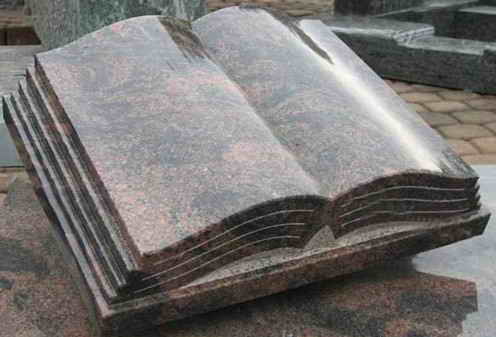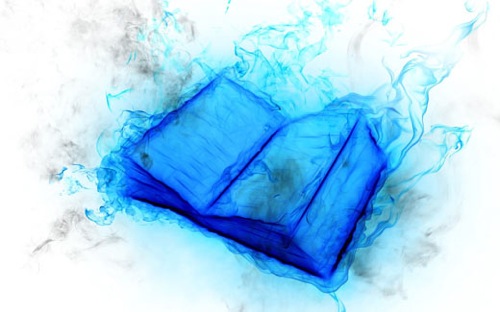Fixity vs Fluidity
[Translations: Japanese]
On his blog Nick Carr spells out the typographic fixity of the classical paper book. It’s a great exposition of all the attractive parts of the big fat heavy paper books. [The image below is of book tombstones.]

I summarize his list of Four Fixities:
Fixity of the page — The page stays the same. Whenever you pick it up, its’ the same. You can count on it, and refer and cite it with certainty.
Fixity of the edition — No matter which copy of the book you pick up, anywhere, it will be the same, so the fixed content is shared, and within an edition, the same always.
Fixity of the object — Paper books last a very long time, and their text doesn’t change as they age.
Sense of completeness — A sense of finality and closure that became part of the attraction of literature.
These are very real, and very attractive qualities. And Carr is absolutely correct that they are some of the qualities that will disappear in ebooks, at least in the versions of ebooks we can see now. He is correct to point out that we will miss them, and that we should be aware of this loss as we chose what kind of books we buy or write.

However, Carr did not list the corresponding downside/upside of ebooks, but there are Four Fluidities of the ebook:
Fluidity of the page – Can flow to fit any space, any where, any time.
Fluidity of the edition – Can be corrected or improved incrementally.
Fludity of the item – Can be kept in the cloud at such low cost that it is “free” to keep and constantly slipped to new “movage” platforms.
Sense of growth – The never-done-ness of an ebook (at least in the ideal) resembles a life more than a stone, animating us as creators and readers.
These are some of the things we gain. Will these fluidities be enough to outweigh the fixities we lose?
Finally, both of these character sets, of fixity and the fluidity, are driven by technology, of paper and electrons. Paper favors fixity, electrons favor fluidity. There is nothing to prevent us from inventing another technology of text, a third way, that might be “in-between” paper and electrons, or might have some of the qualities of the first set and some of the second. I am not convinced that these are binary qualities, nor do they have to only be extremes. It may be possible to invent fixed electronic books, or rigid ebooks, or sticky text in between.


